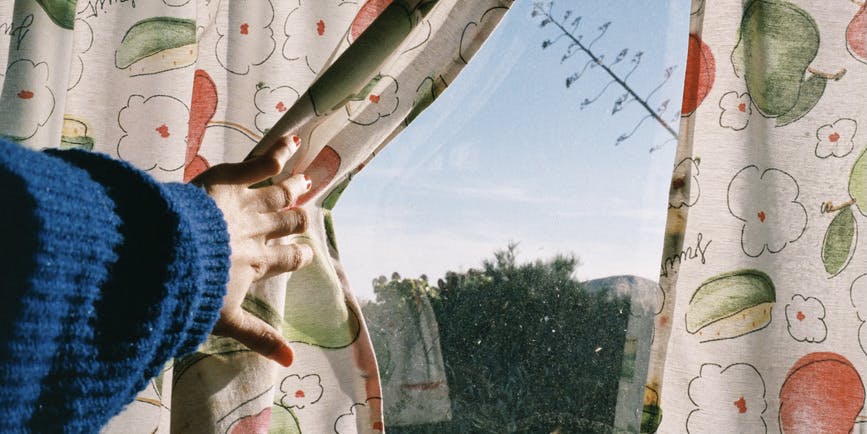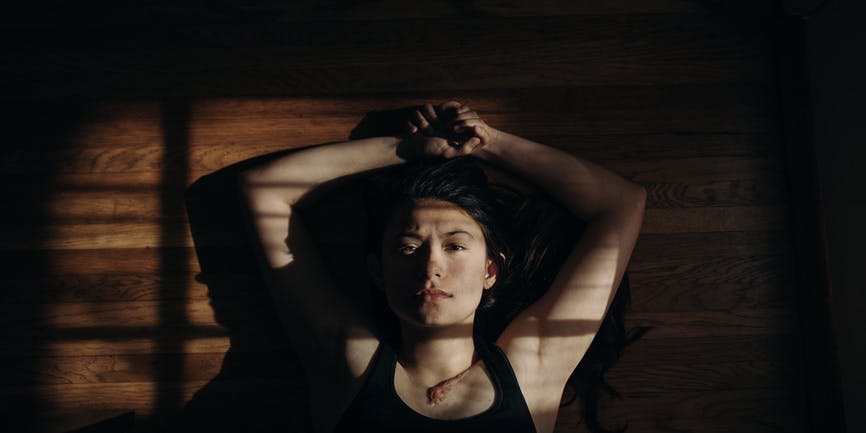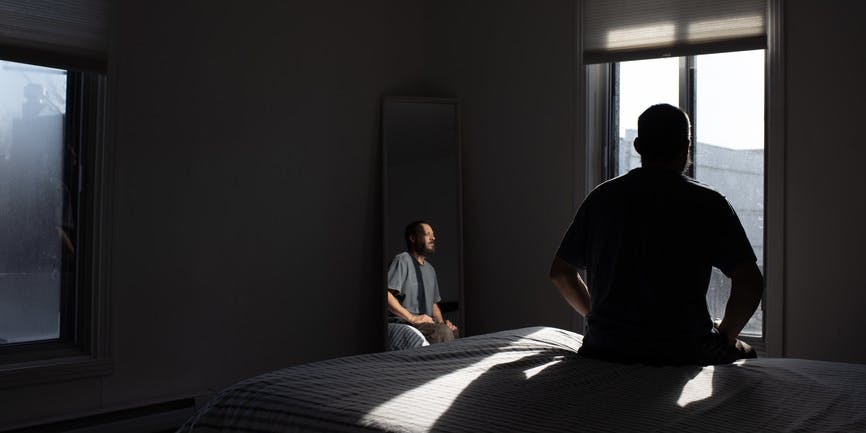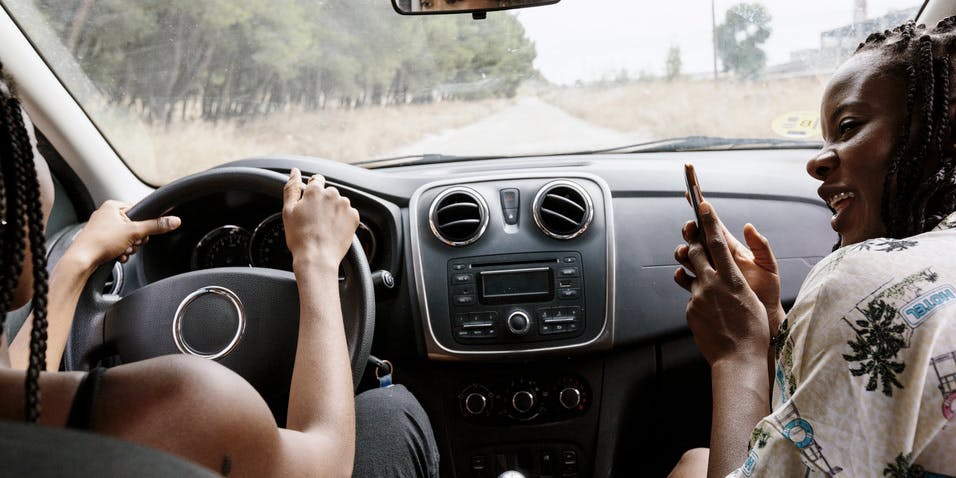What is the future of mental healthcare?

Topics
Welcome to the Dr. B Weekly Roundup, a curated weekly overview that cuts through the noise to deliver vetted reads on Covid-19 and beyond. World Mental Health Day was last week. Sadly, the latest news on our collective mental state gives more reasons for worry than relief. And so this week, we cover what to know about our individual + nationwide quests for better mental health(care), how the pandemic is affecting us, and mental health resources to help you keep calm + carry on. Lift your eyes to the skies with...
- The Checkup:so many resources
- Mental Health: let's reset our systems
- Covid-19: are we in trouble...?
The Check-Up:
- Bored by your self-care rituals? Get inspiration from others like you
- Formula 1 drivers share mental health struggles + tips on video
- Have seasonal depression disorder? Here's your winter to-do list
- More veterans die by suicide than combat. Here are the issues
- Stressed by your finances? You’re not alone. Here’s guidance
- Burned out? The Nap Ministry’s Trisha Hershey has a word for you
- Soothe your skin + senses with these aromatic face mask recipes
- Drag star Jinkx Monsoon opens up on celebrity + sobriety + therapy
- Ukraine’s robust mental health services find new purpose during war
- If you cook when stressed, the new Baking by Feel cookbook is for you
The state of affairs on our mental health

A new survey found that 90% of Americans believe we’re experiencing a massive mental health crisis—a staggering statistic considering there’s little 90% of Americans agree on! Rates of anxiety or depression in adults quadrupled during the pandemic. But the issues go beyond that.
A large chunk of younger adults, LGBT adults and those who make less than $40,000 feel their mental health is “fair” or “poor.” (Scroll back to The Checkup if $ stresses you.) And while it’s great that younger people are more open to mental health support, around half of all adults didn’t ask for it—largely because of a lack of time or funds. Not knowing who to call is also an issue during a severe mental health crisis—Black and LGBT adults in particular believe calling 911 makes things worse instead of better. And while the new National Suicide Prevention 988 hotline funded by the Biden administration's American Rescue Plan is proving successful, not enough people know it exists.
Hopefully that Plan funding will chip away at these issues. Until then, support your mental health with our top tools for rest + relaxation.
We can fix a broken system

In the final bill signed before his assassination, President Kennedy aimed to transform the treatment of those with debilitating mental illnesses. His vision provided grants for states to close their abominable psychiatric hospitals—where patient funding averaged $4 a day—and to plan, build and staff 1,500 community centers where those same people could live with dignity. The institutions closed. But instead of reallocating funds saved from their closure to the community centers, most states just spent the cash elsewhere. When the grants ended, the centers closed, too.
Today, one-third of the 14 million Americans with debilitating mental illnesses don’t have access to adequate medical treatment. Without mental health resources, many face homelessness or join the 40% of prison inmates with diagnosed mental health disorders. These are hard issues to face. But just because the U.S. doesn’t already have a community mental health system doesn’t mean we can’t build one. Want to learn more? Read the full story here.
Take a mental health day

According to new advice from the Mayo Clinic, the health benefits of a designated mental health day include reduced burnout, an improved attitude, greater resilience and more. But Netflixing all day won’t help you recapture passion for day-to-day life or reinvigorate your productivity. You have to be intentional about it.
To guarantee reset success, make a plan for your mental health day: Prioritize outdoor activities you love like gardening or going for a hike. Set aside time to ponder whether you’re living life according to your values or working toward satisfying goals. Or snuggle up with a good book and warm beverage—no social media invited. Get the full health scoop. Not sure you need a mental health day? These subtle signs signify burnout.
The latest: pandemic
U.S. is tracking several omicron subvariants, but new boosters should offer protection, White House says (CNBC). U.S. Covid rates generally mirror Europe’s four to six weeks later, meaning our infection rates will rise just in time for the holidays. The new bivalent boosters do protect against these newer subvariants. But only 13-15 million people have gotten them (compared to over 200 million adults who got the primary series). Officials expect booster numbers to rise in the coming, colder weeks. But get your jab soon for ultimate holiday protection. Find yours here.
How COVID-19 shaped mental health: from infection to pandemic effects (Nature Medicine). Symptoms of anxiety + depression increased during the pandemic, especially among those who met significant challenges. But the good news? Rates of mental disorders and self-harm did not. Still, Covid-19 infections have caused neuropsychiatric symptoms including sleep disturbance, cognitive impairment and anxiety that must be addressed. And public policies didn’t prioritize mental health as best they could. Read the above for details about populations + projections. Worried about the kids in your life? This survey on their pandemic specifics + this playbook offer guidance. Have teens? Dig into their what + how.
‘We are in trouble’: Study raises alarm about impacts of long Covid (Washington Post). A massive new study out of Scotland revealed some alarming—though not surprising—details about those who get chronic symptoms after a Covid-19 infection (long Covid). Tracking 26 symptoms amongst controlled participant groups, those who had Covid-19 were “significantly more likely” to have 24 of the 26 debilitating symptoms. Long Covid has already affected up to 23 million Americans and put one million out of work. And while an asymptomatic case + vaccination can reduce the odds, there’s no guaranteed protection. Click the above for details, which includes a video of patient experiences.
Topics
Sign up for the free Dr. B newsletter for a weekly report on the latest in healthcare + research-based advice for staying healthy and mentally well.